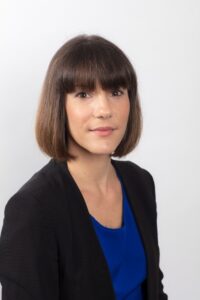School Seminar: Dr Helen Georgiou; University of Wollongong
Friday, 11 March 11:00am – 12:00pm
This seminar will be delivered in Online – Zoom Please email chemistry.researchsupport@sydney.edu.au for zoom link and password.
Speaker: Dr Helen Georgiou; Senior Lecturer, Science Education, University of Wollongong
Host: Prof. Siegbert Schmid
Title: A new perspective on student understanding: using linguistic and sociological concepts to help students understand the ‘rules of the game’
Abstract: Learning Chemistry is extremely challenging for most students. This has been a central problem that researchers, teachers (and students) have persistently grappled with, and one that is now also causing increasing concern for employers and policy makers. Education researchers have predominantly relied on cognitive theories (what is ‘in the mind’) to understand science learning (and learning difficulties). In my research, I propose a different approach, turning to linguistic and sociological theories instead to try and address these enduring problems. In this presentation, I will show how making certain linguistic and knowledge-structure features of the discipline more explicit, has the potential to improve student outcomes. These features are described using the theories of Systemic Functional Linguistics and Legitimation Code Theory.
Biography: Dr Helen Georgiou is a lecturer in science education and former high school physics teacher. Helen’s research focuses on how improve access to and success in science. Her PhD, from The University of Sydney, focused on student understanding of thermodynamics and is entitled ‘Doing Positive Work: on student understanding of thermodynamics’. A unique element of Helen’s research involves drawing from an epistemological framework known as Legitimation Code Theory to explore the nature of scientific knowledge in various educational contexts. This approach is able to make certain knowledge claims and practices more explicit, reducing the risk of misunderstanding and disengagement in science. Other research interests include diagnosing misconceptions, exploring student-generated digital explanations as assessment, describing creativity in physics and evaluating professional learning opportunities through peer observation (in higher education).


